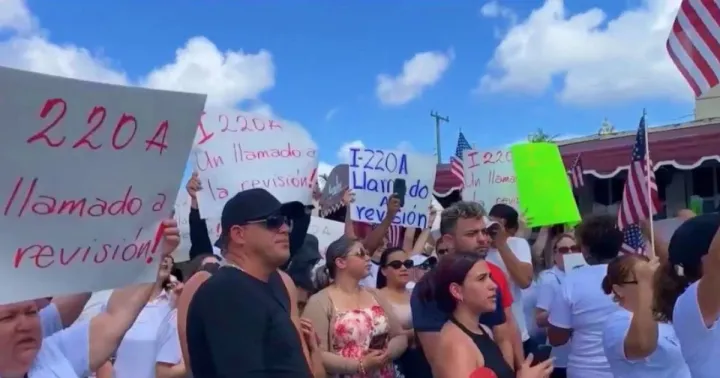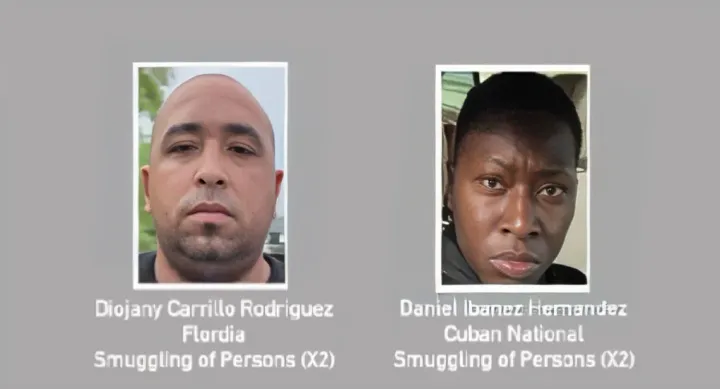US Government confirms that Cubans with I-220A could obtain residency in the US
The adjustment in governmental policy facilitates the process for those who previously faced barriers on their path to legal residency.

Cuban migrants who entered through the United States border and received a Form I-220A may obtain permanent residency if their case is retroactively reviewed and they are granted parole. In doing so, they can apply for the Cuban Adjustment Act to get a Green card.
According to an interview by journalist Mario Vallejo with lawyer José Guerrero, in the last few hours, a meeting was held between the U.S. government and the American Immigration Lawyers Association (AILA). There, various legal doubts were addressed by immigration specialists based on all the cases of Cubans in said situation.
The United States Citizenship and Immigration Services (USCIS) is reviewing cases of Cubans with Form I-220A, a conditional parole under section 236A2, which due to the Cabrera-Fernández judicial ruling is not considered parole for the purposes of the Cuban Adjustment Act.
USCIS’s new initiative involves evaluating each case individually to determine eligibility for parole under section 235D5, instead of the previously granted I-220A. If determined that the correct parole should have been granted, USCIS will coordinate with the agency responsible for the initial release to obtain the appropriate documentation from the release date.
Therefore, Cubans who entered the U.S. and were paroled under section 235D5 can adjust their status under the Cuban Adjustment Act, provided they meet the necessary requirements. This also confirms why some Cubans with I-220A are receiving parole from USCIS without having requested it.
This news represents a ray of hope for thousands of Cuban migrants in the United States. The adjustment in government policy eases the process for those who previously faced barriers on their path to legal residency.
What will happen to the I-220As that have a cutoff date?
Meanwhile, lawyer Wilfredo Allen explains what will happen to I-220As that have a cutoff date. “Over time, there is likely to be an administrative solution for I-220A holders, and USCIS and DHS may ultimately agree to legalize Cubans who possess this document, as it is considered parole.”
The lawyer bases his remarks on concrete figures. “In the last two years, about 300,000 people have entered, most of them with I-220A, and it is impossible to schedule hearings for all of them. I continue to receive appointment notices for hearings in 2026 and 2027.”
“So, the reality is that these dates are practically unattainable. If your first hearing is scheduled for 2026, when will your final trial be? In 2027 or 2028? What will happen during all that time that you are in the United States? In my opinion, it is likely that a solution will be found, similar to what was found for Venezuelans,” he added.




Comments ()